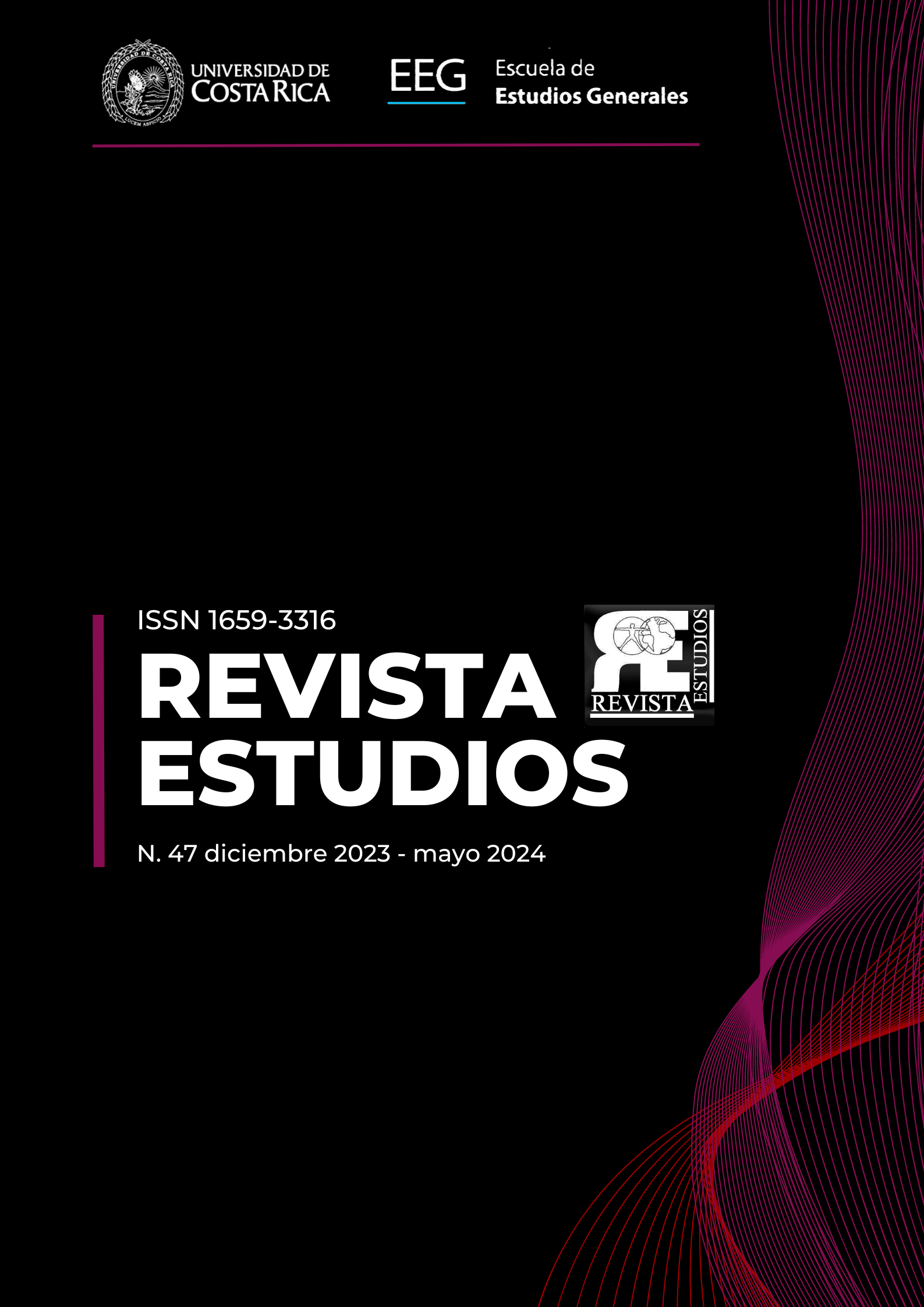For the Section of History of Culture of the School of General Studies, it is a great pleasure to present the second issue of the Revista Estudios for the year 2023 in its 47th edition; in its work to promote the advancement of academic knowledge with a humanistic approach.
In this new issue, we celebrate the diversity of approaches and perspectives to enrich our collective understanding, with a dossier that brings together the contributions of researchers from Spain, entitled "Humanism, today" and coordinated by Dr. Pilar Úcar Ventura, professor at the Universidad Pontificia de Comillas, Madrid. The authors Isabel Lázaro González, Diego García Paz, Carlos Hernández-Fernández, Yu Zhenzhen, Pilar Úcar Ventura and María Aránzazu Serantes approach, from a humanistic perspective, valuable topics such as legal clinics as a service-learning methodology for a humanistic education; the critique of the evolution of humanism; socioemotional competencies, the helping relationship and the inverted classroom experience; socioemotional learning in humanities through strategies to develop socioemotional skills in literature subjects; poetic trends of the late twentieth century through an approach to the poetic work of the polyartist Antonino Nieto Rodríguez; and neohumanism and new ways of conceiving the relationship between human beings, the environment and technology.
We recognize a common mission, on the other side of the Atlantic, in the wise words of Pilar Úcar when she reminds us that the mission of humanism today is "to foster talents from humanity and commitment, from the practice of equity and autonomy, creating humanistic, inclusive and visible links". This dossier was anticipated by Professor Carolina Mora Chinchilla, former director of Revista Estudios , to whom we repay her visionary task with this publication.
In the articles section, our readers will find interesting contributions in education, philosophy, cinema, art and aesthetics, economics of cultural goods and history. Silvia Yunuén González Cabrera and Noemí Alejandra Pinto Rodríguez propose a theoretical approach to neuroeducational strategies to favor the attitude towards study and the development of metacognitive skills in Mexican university students. Hernán González Acuña unravels the philosophical aspects that sustain the universality of human rights, in the thought of the French philosopher Claude Lefort, taking as a starting point his notion of the political to explain the elements that found democratic society. Daniel Rojas Pachas analyzes the film Güeros by Alonso Ruizpalacios, starting from the theoretical postulates of Gerard Genette and Jean Baudrillard on metalepsis and simulacrum, to study the dichotomy between the real and the simulacra constructed by television and film images, and highlights the importance of the journey as a mechanism for the reconstruction of subjectivity.
Daniel Montero Rodríguez makes a critical analysis of theoretical texts that propose the general notion of "Latin American art" to point out the rights and wrongs of authors such as Juan Acha, Marjorie Avila Salas, Ticio Escobar, César Fernández Moreno and Severo Sarduy in their theoretical approach to Latin American art, esthetics, and culture. Jenny Andrea Calderón-Castro and Leonardo Garro-Mena put on the table a theoretical-methodological proposal for the analysis and management of the authenticities present in the dynamics of commercialization of Chorotega ceramics, oriented towards the action of the Regulatory Council and that tries to value those other authenticities, beyond the essentialist one, can be taken into account in the Denomination of Origin. This section closes with a study in historical perspective by Ronald Eduardo Díaz Bolaños, Luis Diego Arias Campos, and Gabriel Madriz Sojo on the social, political and economic factors that shaped the border community of Santa Cecilia, in the Costa Rican canton of La Cruz, from the beginning of the 20th century to the present. The border demarcation between the national States of Costa Rica and Nicaragua, as well as geographical and environmental factors conditioned the conformation of the town and its sustainability.
We conclude this issue 47, bidding farewell to the commemoration of the bicentennial of Central American independence with a review of the book "La opinión de un pueblo no se conquista", coordinated by historians José Aurelio Sandí (Costa Rica) and Sajid Herrera (El Salvador), by historians Eduardo Madrigal and Ileana D'Alolio.
We would like to express our gratitude to all the researchers and academics who have contributed to this issue and, of course, to our editorial team. Their dedication and experience have been fundamental in guaranteeing the quality and relevance of each article presented in our journal. We invite you to enjoy reading it.
M.Sc. Ileana D’Alolio Sánchez
Director
